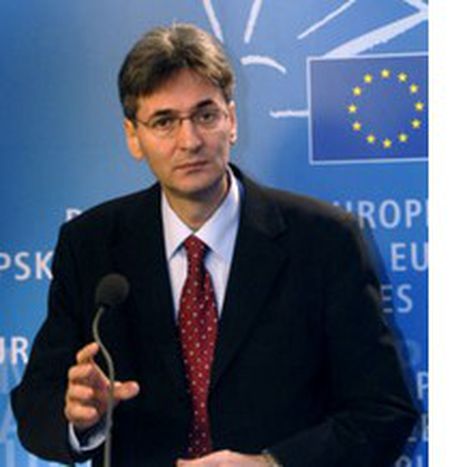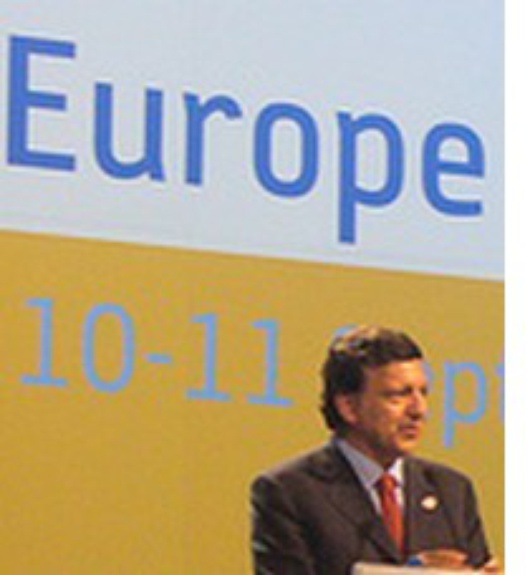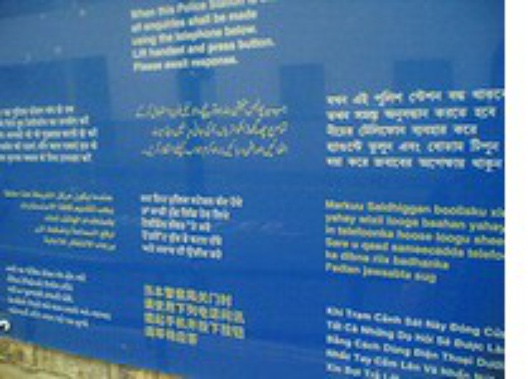
Multilingualism: ‘English is not enough’
Published on
Translation by:
 luke croll
luke croll
27 states, 23 languages; Leonard Orban, Romanian Commissioner-designate for multilingualism, is to head the new European tower of Babel in 2007
The grinding of teeth can be heard. Last October, the appointment of Leonard Orban, 45, Romania’s deputy chief negotiator with the EU since 2001, as the first Commissioner-designate for multilingualism, gave rise to some acerbic comments from observers. On December 12, MEPs give their final vote on this contested candidacy.
Mindblowing material
Compared to the new consumer protection portfolio, which has been entrusted to the future Bulgarian Commissioner Meglena Kouneva, the multilingualism portfolio ought to be a mere trifle, according to Alina Mungiu-Pippidi, political scientist in Bucharest. It is an act which demonstrates the lack of interest in incoming Romania. The Slovakian Jan Figel previously held this position, which has been denigrated as ‘council housing night watchman,’ ipse dixit columnist Ion Cristoiu. Even then, he wasn’t sole commissioner for it, and shared the post concurrently with education and culture. Figel will remain in charge of the latter two; Leonard Orban meanwhile takes on the white elephant.
Romanian journalist Rodica Culcer wasted no time in ironically reflecting on the connection between the weight of the multilingualism portfolio as a single post and Orban’s political calibre. Both hover around zero, she says.
The leading Romanian opposition party, the Social Democrats (the centre-left PSD), has criticized Orban for his technocracy and lack of political personality. For the Social Democratic Party, the nomination is entirely strategic, as it will serve to balance out the political forces within the Commission, and avoid criticism.
 Socialist MEPs are delighted that Orban has ‘the necessary European experience,’ whilst lamenting the fact that ‘Romania has not been able to put forward a higher-level political figure.’ It was a nomination made in haste; the Romanian government withdrew its previous nominee, the liberal economist Varujan Vosganian, following embarrassing accusations about his past.
Socialist MEPs are delighted that Orban has ‘the necessary European experience,’ whilst lamenting the fact that ‘Romania has not been able to put forward a higher-level political figure.’ It was a nomination made in haste; the Romanian government withdrew its previous nominee, the liberal economist Varujan Vosganian, following embarrassing accusations about his past.
José Manuel Barroso, president of the Commission, is positive: ‘I am sure that Mr. Orban, through his experience, qualities and personal, political and professional commitment, will carry out the responsibilities that I would like to bestow upon him with complete success.’
ad hoc portfolio?
So what will the Romanian actually do? He is in control of three Directorate-Generals - the Directorate-General for Translation, the Directorate-General for Interpretation and the Office for Official Publications of the European Communities. A team of approximately 3400 civil servants will be under his leadership. The notion is almost romantic; by wanting to instil in Europeans a love of languages, Leonard Orban has already spoken in favour of the principal of ‘mother tongue + 2’ foreign languages. In a union of 27 states with 23 official languages, English is not enough.
 In order to increase European citizens’ motivation to learn their neighbours’ languages, Orban also proposes subtitling films. Language teachers will be better trained. Citizens, as well as businesses within the EU, must speak several languages.
In order to increase European citizens’ motivation to learn their neighbours’ languages, Orban also proposes subtitling films. Language teachers will be better trained. Citizens, as well as businesses within the EU, must speak several languages.
Orban’s goal is simple – the wealth of languages and cultures will be at the heart of Europe’s political and economic unity. With the increase in the number of official languages, the tensions between administrative efficiency and the right of citizens to linguistic diversity are ever more apparent. At this time, the survival of European cultures, the democratisation of an enlarged European Union and even, perhaps, its competitiveness, depend on multilingualism.
Translated from 27 + 23 = multilinguisme


